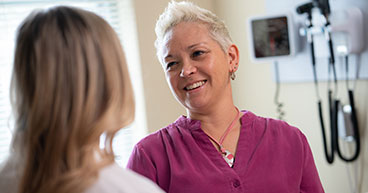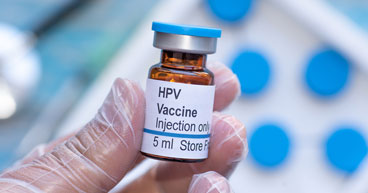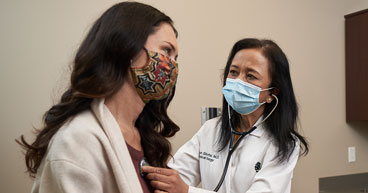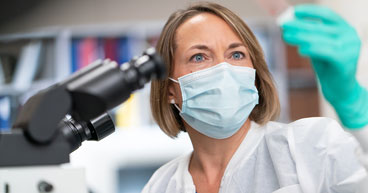


721 Posts

January 26, 2023
What’s driving the improvement in U.S. cancer survival rates?The cancer death rate in the U.S. has declined 33 percent since 1991, thanks largely to new treatments, gains in early cancer detection and, most significantly, a sharp decline in tobacco use.

January 24, 2023
The most preventable cancer: How HPV vaccination decreases cervical cancer riskNot only has vaccination proven to be an effective tool in recent years, it’s made cervical cancer one of the most preventable cancers.

January 19, 2023
What it means to have dense breastsHaving dense breast tissue raises your risk of developing breast cancer. And while you can’t change your breast density, you may manage your risk by taking proactive measures and developing healthy lifestyle habits.

January 17, 2023
Why are cancer rates rising in adults under 50?Over the last few decades, doctors have been seeing dramatic increases in cancer in adults younger than 50. The disturbing trend has scientists searching for reasons behind the sharp increase in early-onset cancer, how best to screen for or detect cancers in young adults, whether the cancers are different types of common cancers in older adults and which treatments show promise for younger people.

January 12, 2023
What’s the difference? Benign vs. malignant tumorsWhile it may seem easy to categorize benign tumors as harmless and malignant tumors as harmful, the distinctions are often more of a gray area. Yet the importance of differentiating the two is critical.

January 10, 2023
What to expect from cancer surgeryPreparing for cancer surgery may be overwhelming. You may feel nervous about what the surgery will entail, scared of the pain it may cause, and worried about how long it will take for you to recover. But knowing what to expect—including in the days and weeks afterward—may help.

January 5, 2023
Study: Lifestyle changes may prevent nearly half of the world’s cancer deathsA recent comprehensive global study investigated cancer cases that were attributable to modifiable risk factors. It found that nearly half of cancer deaths worldwide, 44.4 percent, may have been avoidable if the victims had paid attention to factors that raised cancer risk and made lifestyle changes to reduce those risks.

January 3, 2023
How to file for Social Security disability benefits if you have cancerA cancer diagnosis may qualify as a disability, allowing you to apply for and receive social security disability income. But it's important to know what benefits may be available to you and how to file.

December 27, 2022
HPV vaccine compliance still lags as researchers eye a one-shot protocolVarious factors and a growing mistrust of vaccines are among some of the reasons why HPV vaccine rates may lag behind traditional recommended childhood vaccines
Guidelines
The information contained in this blog is not intended nor implied to be a substitute for professional medical advice. Always seek the advice of your physician or other qualified health provider prior to starting any new treatment or with any questions you may have regarding a medical condition. Nothing contained in the blog is intended to be used for medical diagnosis or treatment of any illness, condition or disease.